Life insurance is more than just a policy. It’s a way to protect your family’s financial future. If something happens to you, life insurance can help cover expenses like debts, a mortgage, or even your child’s education. Understanding how life insurance works is the first step to making the right choice for your needs. Whether you’re new to the concept or looking to update your plan, we’ll break it down in a simple and clear way.
Understanding Life Insurance
What is Life Insurance?
Life insurance is a contract between you and an insurance company. You pay a premium, and in return, the company promises to pay a set amount of money to your chosen beneficiaries when you pass away. Essentially, it’s a way to protect your loved ones financially after you’re gone.
Here’s how life insurance works in simple terms:
- You choose a policy that fits your financial needs.
- You pay premiums monthly or annually to keep the policy active.
- After your death, the insurance company pays out the agreed amount to your beneficiaries.
A 2022 study by LIMRA revealed that 52% of American adults own some form of life insurance. This shows how many people rely on these policies to help secure their families’ futures.
Why is Life Insurance Important?
Life insurance is one of the best ways to give your family financial stability. If you pass away unexpectedly, your loved ones may have to cope with expenses like funeral costs, outstanding debt, or lost income. Life insurance can help ease this burden.
Here are some of the top reasons why people get life insurance:
- Debt Relief – Your policy can cover debts like a mortgage, car loans, or credit cards so your family isn’t left struggling.
- Education Costs – It can help pay for your children’s college tuition or other future needs.
- Peace of Mind – Knowing your family won’t face financial hardship after you’re gone offers huge relief.
Understanding how life insurance works can show you how it fits into a long-term financial plan and why it’s so valuable for protecting those you care about.
Types of Life Insurance
Term Life Insurance
Term life insurance offers coverage for a specific time, like 10, 20, or 30 years. It’s one of the simplest and most affordable options. If you pass away during the term, your beneficiaries receive the death benefit. If the term expires, the policy ends unless you renew it.
Why consider term life insurance?
- Lower premiums compared to other policies.
- Fixed coverage for key life stages, such as raising children or paying off a mortgage.
- Flexibility to convert to permanent insurance in many cases.
A study reported that 68% of life insurance policyholders in the U.S. choose term life for its affordability and straightforward design. This shows its appeal for individuals just starting with life insurance.
Whole Life Insurance
Whole life insurance provides lifetime coverage. It also builds a cash value that grows over time. You can borrow from this value or even surrender the policy if you need the cash. However, premiums are higher than those for term life insurance.
Key benefits of whole life insurance:
- Lifetime protection—your family is always covered.
- Builds financial value you can use during your lifetime.
- Fixed premiums that don’t increase as you age.
Whole life policies are ideal for people who want a policy they don’t have to think about renewing or who are interested in using it as a tool for savings.
Universal Life Insurance
Universal life insurance combines permanent coverage with investment options. It allows more flexibility with premiums and death benefits than whole life policies.
Advantages of universal life insurance:
- Adjustable premiums to fit your budget over time.
- Builds cash value that may grow based on market performance.
- Flexibility to increase or decrease the death benefit after certain milestones.
Understanding how life insurance works can help you see how universal life insurance can be tailored to your financial needs while offering lifelong coverage.
Other Types of Life Insurance
There are several additional options, including:
- Variable Life Insurance – Offers death benefits and a cash value that’s tied to investments, like stocks or mutual funds.
- Final Expense Insurance – Designed to cover end-of-life costs, such as funeral expenses, and is usually more affordable for seniors.
Each type of life insurance serves a different purpose, making it easier for you to find the policy that best fits your situation. It’s essential to explore how life insurance works for each type to choose the guidance and financial security your family truly needs.
How Life Insurance Works
The Application Process
Getting life insurance starts with an application. This usually includes basic information about your health, lifestyle, and financial situation. Many insurers require a medical exam to better assess your health. This step helps determine your eligibility and the cost of your premiums.
Here’s how the process works:
- Fill out an application – You’ll answer questions about your age, income, and habits like smoking or exercise.
- Take a medical exam (if required) – A doctor or nurse may check your blood pressure, take a blood sample, and collect medical history details.
- Underwriting process – The insurance company evaluates your risk and sets your policy terms.
According to the Insurance Information Institute (III), younger and healthier applicants typically pay lower premiums because they pose less risk.
Premiums and Payments
Premiums are the amount you pay to keep your policy active. These can be paid monthly, quarterly, or yearly depending on what works for your budget. The cost depends on factors like your age, health, and the type of policy you choose.
Here’s what influences your premiums:
- Age – The younger you are when you apply, the lower your premiums.
- Health – A healthy lifestyle can reduce costs.
- Coverage amount – Larger death benefits mean higher premiums.
- Policy type – Term life, for example, is often cheaper than whole life insurance.
Knowing how life insurance works with premiums means understanding that the earlier you begin, the more affordable and manageable it can be over the long term.
Payout and Claims
When a policyholder passes away, their beneficiaries receive the death benefit. Beneficiaries could be family members, business partners, or anyone you choose. The claims process is usually straightforward.
Steps to make a claim:
- Notify the insurance company about the policyholder’s death.
- Submit required documents, such as a death certificate and claim forms.
- Receive the payout, typically within 30 days.
Recent data shows that 99% of life insurance claims are paid out, offering families the financial relief they need. Understanding how life insurance works ensures that beneficiaries are prepared to access the benefits quickly when needed.
Life Insurance Considerations for Fort Myers, Florida Residents
Unique Factors in Florida
Florida has some unique conditions that can influence your life insurance decisions. For instance, the state has specific laws that protect the cash value and benefits of life insurance from creditors. This means your policy can provide added financial security not just for your family but also for protecting your personal assets.
Florida is also home to a growing retiree population. Nearly 21% of the residents are over 65 years old. This demographic shift often impacts life insurance needs, as retirees tend to focus on policies that help cover final expenses or assist in estate planning.
Additionally, Fort Myers’ coastal location means residents frequently face risks like hurricanes. While life insurance typically doesn’t factor in property damage risks, the indirect financial strain from severe weather events could make life insurance a more significant part of your overall safety net.
Common Concerns in Fort Myers
Life insurance planning in Fort Myers often considers concerns like:
- Seasonal Residents: Many Fort Myers residents split their time between Florida and other states. This might lead to planning policies that work across state lines.
- Hurricane Preparedness: Major storms can derail families financially. Having life insurance can add an extra layer of financial security in case of unplanned expenses or tragedies.
- Cost of Living: While Fort Myers is more affordable than some parts of Florida, many families still face rising housing and living costs. Life insurance can assist in covering big expenses such as mortgage payments in the event of a loss.
Understanding how life insurance works in Florida will help you make informed decisions, especially when you factor in the state’s unique environment and laws.
Working with a Local Insurance Agency
A local insurance agency in Fort Myers understands the area’s specific needs. Whether you’re a retiree looking for final expense coverage or a young family interested in term life insurance, working with a local expert can make a big difference.
Benefits of using a Fort Myers-based agency:
- Tailored Advice: Agents are familiar with local risks, regulations, and common concerns for residents.
- Personalized Service: You’ll get advice that fits your unique needs rather than a one-size-fits-all policy.
- Community Insight: Local agencies often have strong connections in the community, helping them create better coverage options for their clients.
Understanding how life insurance works in Fort Myers isn’t just about the policies—it’s about finding the right partner to guide you through the process.
Benefits of Life Insurance
Financial Security for Loved Ones
One of the biggest benefits of life insurance is the financial protection it provides to your loved ones. If you pass away, life insurance can replace your income, helping your family maintain their lifestyle. For example, it can cover household expenses, outstanding debts, or future needs like college tuition.
A recent study revealed that 42% of families would face financial hardship within six months if the primary wage earner passed away. Life insurance bridges this gap and ensures that your family doesn’t have to struggle during an already difficult time. Understanding how life insurance works shows why it’s such an essential safety net.
Estate Planning
Life insurance can play a key role in estate planning, especially for larger estates or complex financial situations. It helps provide liquidity to pay estate taxes, ensuring your assets transfer smoothly to your heirs without forcing them to sell property or investments.
Additionally, a life insurance policy can serve as a structured way to leave a legacy. If you designate specific beneficiaries, the payout will go to them directly, bypassing the often lengthy probate process. This ensures that your loved ones can access funds faster, exactly when they need them.
Peace of Mind for Policyholders
Knowing that your family will be financially secure offers peace of mind. Life insurance removes the uncertainty about how loved ones will manage financially if something happens to you.
Here’s how it works to provide that peace:
- Predictable Support: Life insurance guarantees a payout, so even during unpredictable times, your family can count on financial stability.
- Tailored Coverage: You can customize your coverage to match your family’s unique needs, from everyday living expenses to long-term goals.
- Long-Term Assurance: Unlike savings, which might run out, life insurance creates a reliable safety net for as long as you maintain the policy.
By understanding how life insurance works, you’ll see it’s more than just a financial product—it’s a plan for your family’s wellbeing through every stage of life.
Frequently Asked Questions About Life Insurance
When you’re learning how life insurance works, it’s normal to have questions. Here are some common ones people ask and the answers that can help you make an informed decision.
1. How much life insurance coverage do I need?
The amount you need depends on your personal situation. A general rule is to aim for 10–15 times your annual income. This should be enough to cover important expenses like your mortgage, debts, and future costs like your child’s education.
For example:
- If you earn $50,000 a year, a policy between $500,000 and $750,000 might work for you.
- If you have fewer financial obligations, a smaller policy may still be enough.
Using an online life insurance calculator or discussing your needs with an agent can help define the right amount for your needs.
2. Can I have multiple life insurance policies?
Yes, you can. Many people choose to have multiple policies to address different needs. For example:
- A term life policy might cover your mortgage until it’s paid off.
- A whole life policy could provide lifelong protection and build cash value.
Having multiple policies works because they’re not dependent on each other, so you can tailor coverage for specific financial goals.
3. What happens if I stop paying my premiums?
What happens varies depending on your policy type:
- Term Life Insurance – If you stop paying, your coverage will end, and you won’t get back any premiums you’ve already paid.
- Whole or Universal Life Insurance – If you have built up enough cash value, the policy might use that to cover missed payments temporarily. Otherwise, the policy will lapse.
It’s always better to contact your insurer if you’re having trouble making payments. They may offer solutions like switching to a smaller policy or modifying your payment schedule.
4. Is life insurance taxable?
The death benefit your beneficiaries receive is generally not taxable. However, exceptions exist if the policy was sold or transferred, or if the payout becomes part of a taxable estate.
If you choose a whole or universal life policy, the cash value growth is typically tax-deferred, which means you don’t pay taxes on it as it grows. Understanding how life insurance works with taxes can help you maximize the financial benefit.
5. Can I change my beneficiaries later?
Yes, you can update your beneficiaries at any time. Life events like marriage, divorce, or having children are common reasons to review and update your policy. Just contact your insurance company, and they can guide you through the process.
Answering these frequently asked questions is a great way to start understanding how life insurance works. If you’re still unsure about something, speaking with a knowledgeable agent can help clear up any concerns.
How to Get Started with Life Insurance in Fort Myers
Finding the Right Policy for Your Needs
Choosing the right life insurance policy starts with understanding your financial situation and goals. Ask yourself questions like:
- How much coverage do I need for my family?
- What can I afford to pay in premiums each month?
- What type of policy (term or permanent) aligns with my needs?
For example, if you’re a young parent, term life insurance might be ideal to cover your children’s upbringing expenses. On the other hand, if you’re planning for long-term estate building, a whole life or universal policy could be a better fit.
Fort Myers has a unique demographic mix, with many retirees and young families alike. Each group can benefit from life insurance tailored to their stages of life. According to LIMRA, 4 out of 10 households would feel financial strain immediately if the primary income earner passed away. This shows how critical it is to get the right level of protection for your family.
Consulting with a Local Expert
Working with a local insurance agent in Fort Myers gives you the personalized advice you need. They can help you understand how life insurance works based on Florida-specific factors like laws that protect beneficiaries or seasonal residency concerns.
Tips for choosing an agent:
- Look for agents with strong experience in the Fort Myers area.
- Ask if they specialize in life insurance or offer a range of products.
- Check reviews or ask for recommendations from local friends or family.
A local expert understands the unique challenges and needs of this coastal city, helping you make informed decisions.
Final Steps
Once you’ve chosen a policy, there are a few steps to finalize it:
- Review the Terms – Make sure the coverage, premiums, and beneficiaries match your expectations.
- Ask Questions – Don’t hesitate to clarify any part of the policy that feels unclear.
- Commit to Regular Reviews – Life insurance isn’t a one-time decision. Review your policy every few years or after major life events, like having a child or moving to a new home.
Getting started with life insurance doesn’t have to feel overwhelming. Understanding how life insurance works, especially in Fort Myers, can set you up for a smoother process and peace of mind knowing your family’s future will be secure.
Life insurance provides financial protection for you and your loved ones. It comes in various types like term, whole, and universal life, each meeting different needs. Understanding how life insurance works, including applications, premiums, and payouts, helps you make informed choices. For residents in Fort Myers, unique factors like hurricanes and retirement needs may impact your decisions. The benefits of life insurance go beyond just financial security—they offer peace of mind and help with estate planning.
If you’re ready to protect your family’s future, contact us today for advice or to get a personalized life insurance quote.







